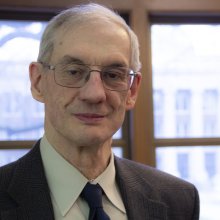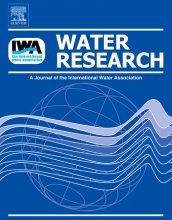News
We'd love to hear your news and ideas and to help share your accomplishments!
Submit news, updates, story ideas to cegenews@umn.edu.

Li Receives Eisenhower Transportation Fellowship for Applying Data Science to Improve Pedestrian Safety
Posted
Tianyi Li (a doctoral student advised by Raphael Stern) received a prestigious Dwight David Eisenhower Transportation Fellowship. The competitive, merit-based fellowship from the Federal Highway Administration funds students pursuing degrees in transportation-related disciplines.

Gary Davis, Transportation Engineer
Posted
Gary Davis has long been working to keep you safe as you drive. Now, Davis is developing ways to keep you safe in the presence of automated vehicles.

Visualizing Protein Synthesis in Wastewater
Posted
Researchers from the Department of Civil, Environmental, and Geo-Engineering at the University of Minnesota have optimized a novel technique to visualize proteins generated by microorganisms in wastewater. The method allows scientists new insights into the lifestyle of uncultured microbes (organisms that may not easily be grown in the lab) and how these microbes react and adapt to changing environmental condition in wastewater treatment plants over space and time.

Structural engineering faculty help ensure safe structures
Posted
It is often said that the work of engineers goes unnoticed until something goes wrong. In June of 2021, news was dominated by the account of a condo building collapse in Florida. The collapse of the multi-unit residence in the middle of the night caused multiple deaths. Minnesotans are still mindful of the 2007 collapse of the I-35W bridge. These dramatic incidents bring the public’s attention to the work of engineers, but the greater percentage of their work to protect the health, safety, and welfare of the public takes place out of the public eye.

Quinn Whiting develops NMR spectroscopy method to track fluorine
Posted
Quinn Whiting (MS Civil Engineering 2020, advised by Bill Arnold) was awarded one of only two 2021 Master’s Thesis Awards from the Association of Environmental Engineering and Science Professors (AEESP). Whiting’s thesis, “Fluorinated Photoproduct Formation from Photolysis of Fluorinated Pharmaceuticals and Phenols,” contributes a new method of tracking fluorine during reactions of pollutants.
Xue Feng Receives NSF Career Award
Posted
Feng’s research has two main goals—to discover new ways that water shapes the ecosystem response to climate change, and to use that new knowledge to advance modeling of Earth systems and climate predictions.
AVs and Traffic Flow
Posted
RAPHAEL STERN researches vehicle automation and transportation cyber-physical systems. He is specifically interested in the impact of autonomous (or semi-autonomous) vehicles on the overall traffic flow and dynamics at low market penetration rates.
AVs and Intersections
Posted
MICHAEL LEVIN has been working on a new traffic signal timing method that is computationally easy to implement, yet still has favorable impacts across an entire traffic system. Levin’s research focuses
on modeling connected autonomous vehicles (CAVs) and intelligent transportation systems to predict and optimize how these future technologies will affect travel demand and traffic flow. He uses traffic flow, transportation network analysis.
AVs and Transit
Posted
ALIREZA KHANI is a transit enthusiast with a background in engineering. His research focus is on modeling the impacts of emerging technologies on public transit systems, and optimization of the system for more efficient and reliable service. He uses network modeling and optimization techniques.
Three CEGE faculty research automated vehicles
Posted
Automated vehicle technologies are closer and more practical than ever before. They promise numerous and broad benefits in terms of safety and efficiency. The next steps are to integrate these new technologies safely into our existing transportation infrastructure. In CEGE, researchers Alireza Khani, Michael Levin, and Raphael Stern are studying the integration of autonomous vehicles (AVs) with transit, intersection controls, and traffic streams.